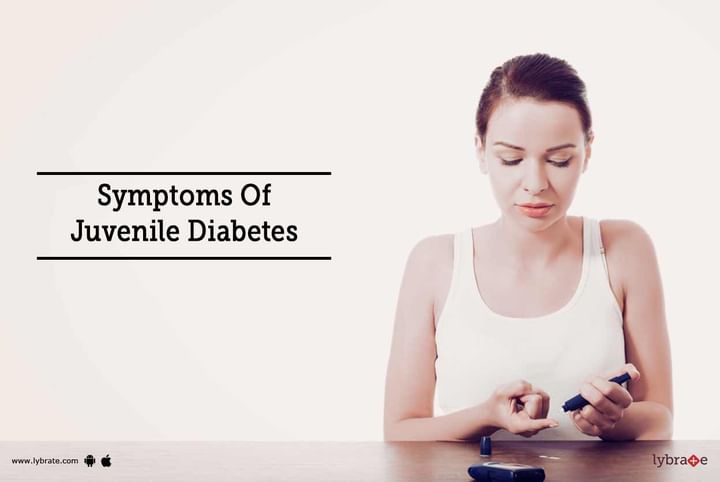Symptoms Of Juvenile Diabetes
Last Updated: Apr 13, 2020
An warning of diabetes is increase in hunger of a juvenile. The glucose in the blood is used by the body to feed the cells which are present in the body. Due to complication in the system the cells of the body are not able to absorb the glucose. This results in body looking for more energy leading to an increase in the hunger.
Weight Loss
A juvenile suffering from the condition of diabetes has high amounts of glucose circulating in the blood that kidney find it difficult to manage it and passes it into the urine. This may result in a juvenile losing weight. Even though a juvenile who has been diagnosed with diabetes is eating a lot of food because of increased hunger still there will be weight loss experienced. When a juvenile is experiencing an unexpected weight loss then also it can be considered as an sign of diabetes.
Fatigue
A juvenile suffering from the problem of diabetes may feel extremely exhausted or tired. This is because of the low levels of energy in the body. This exhaustion or fatigue is the result of the non-significant sugar moving in the bloodstream and then getting transferred to the cells of the body.
Irritability or behavior changes
If a juvenile is suffering from diabetes then he or she might experience mood swings. These mood swings are not uncommon. The blood sugar can have an effect on the how a person feels. If the blood sugar is managed poorly then it can have a negative impact on not only the mood but the quality of life as well. When there are fluctuations in the blood glucose levels it results in the rapid changing of the mood to a state of irritability. A person feels like fighting and gets irritated easily.
Fruity Smelly Breath
One of the symptoms of diabetes in a juvenile includes fruity smelly breath. When a juvenile has diabetes then the body of the juvenile does not produce enough insulin. It is the function of the insulin to breakdown the glucose in the blood so that energy can be provided. If the body is not able to get the energy from the glucose then it starts burning the fat for energy. When the fat gets broken down to get energy a byproduct by the name of ketones gets released. If the breath of a juvenile smells fruity then it indicates the presence of ketones in the blood.
Blurred vision
Tiny blood vessels in the eyes can get damaged due to excess amount of sugar in the blood. This leads to a juvenile experiencing blurry vision. This blurriness in the vision may occur in either one or both eye. This condition of blurriness may also come and go. There can be a permanent loss to the vision if a juvenile with diabetes goes without treatment as the damage to the blood vessels of the eyes will become more severe and permanent.
Yeast Infection
There is excess amount of sugar in the blood and urine of a juvenile who is suffering from the diabetes. This provides food for the yeasts and leads to the development of infection in the body. The yeast infection would be visible on the moist and warm areas of the skin. Some of the places where yeast infection can occur are mouth, armpits and genital areas.
References
- STEENBURGH L. SELF-CONCEPT AND JUVENILE DIABETES IN YOUNG ADULTHOOD (Doctoral dissertation, TRINITY WESTERN UNIVERSITY). [Cited 06 April 2020]. Available from:
- Rydén O, Nevander L, Johnsson P, Hansson K, Kronvall P, Sjoblad S, Westbom L. Family therapy in poorly controlled juvenile IDDM: effects on diabetic control, self‐evaluation and behavioural symptoms. Acta Paediatrica. 1994 Mar;83(3):285-91. [Cited 06 April 2020]. Available from:
- Dantzer C, Swendsen J, Maurice-Tison S, Salamon R. Anxiety and depression in juvenile diabetes: a critical review. Clinical psychology review. 2003 Nov 1;23(6):787-800. [Cited 06 April 2020]. Available from:
Table of content
Ask a free question
Get FREE multiple opinions from Doctors



